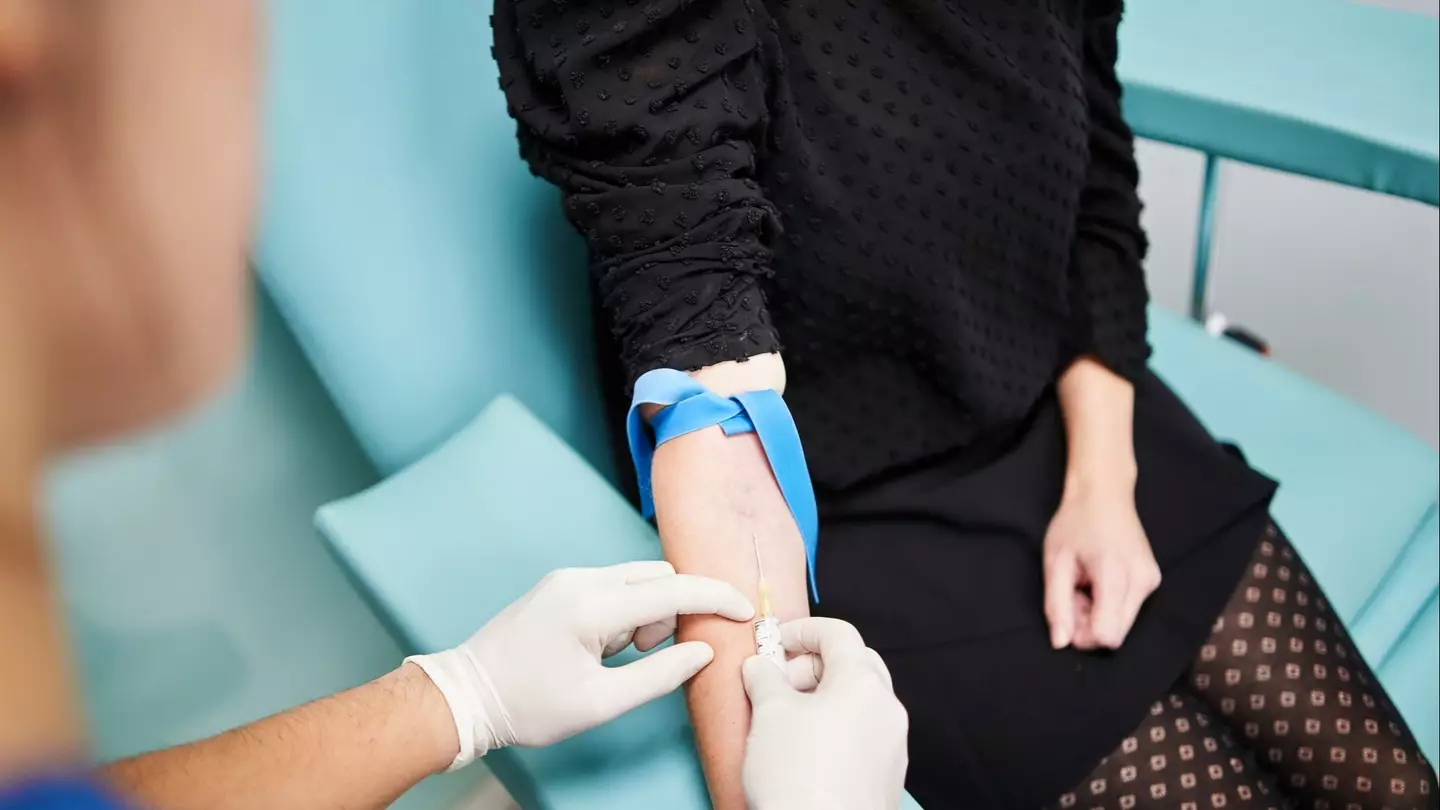
NHS scientists have solved a 50-year mystery after discovering a new blood group.
In 1972, a pregnant woman had her blood sampled and left doctors confused when they found that it was missing a surface molecule found on all other known red blood cells at the time.
Most people know about the ABO blood group system (A, B, AB, and O) which is based on the presence or absence of two antigens, A and B, on the surface of red blood cells. You may also know about the Rh factor (which is where the positive and negative part comes in).
If these factors don’t match when receiving a blood transfusion, it can trigger a response from the immune system and can lead to serious complications.
Advert
So to put it simply, compatibility is key!

Now, scientists have found out more information about the pregnant patient’s missing molecular absence, leading to the identification of a new blood group in humans which will improve medical care for rare patients.
A team of researchers, led by NHS Blood and Transplant (NHSBT) scientists, have confirmed a blood group called MAL.
A test has been developed that will identify patients missing the AnWj antigen which is carried by the MAL protein on red blood cells.
A deletion in the MAL gene prevents expression of the MAL protein, leading to the inherited AnWj-negative phenotype.
"MAL is a very small protein with some interesting properties which made it difficult to identify and meant we needed to pursue multiple lines of investigation to accumulate the proof we needed to establish this blood group system," explained Dr Tim Satchwell, a University of the West of England cell biologist.
Due to the team identifying the genetic background of the previously known but mysterious AnWj blood group antigen, treatment for rare patients can be better tailored to them.

"Only a very small number of people are AnWj-negative due to a genetic cause," the NHSBT said in a statement.
NHSBT’s International Blood Group Reference Laboratory developed the test which could be a lifesaver to prevent negative reactions if they need a blood transfusion.
Louise Tilley, senior research scientist at NHSBT, explained that the discovery will ensure better care for patients with the rare blood group.
Tilley said: "The genetic background of AnWj has been a mystery for more than 50 years, and one which I personally have been trying to resolve for almost 20 years of my career.
"It represents a huge achievement, and the culmination of a long team effort, to finally establish this new blood group system and be able to offer the best care to rare, but important, patients.
"The work was difficult because the genetic cases are very rare. We would not have achieved this without exome sequencing, as the gene we identified wasn’t an obvious candidate and little is known about Mal protein in red cells.
"Proving our findings was challenging, and we appreciate the help of all our collaborators, and the patients, without whom we would not have got to this point."
